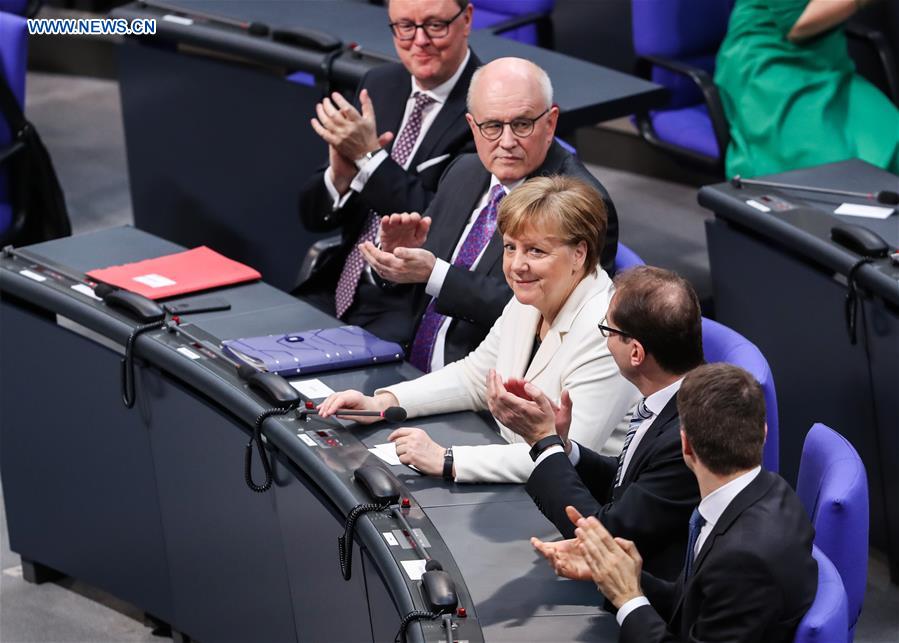Merkel narrowly re-elected as German chancellor for fourth term


BERLIN -- Christian Democratic Union (CDU) leader Angela Merkel has been elected chancellor for the fourth time on Wednesday by a narrow majority of delegates in the German federal parliament (Bundestag).
The 63-year old veteran stateswoman was supported by 364 out of 688 delegates during the anonymous vote, granting her only four more votes than the minimum threshold of 355 in the 709-seat chamber under German law.
Given that the ruling "grand coalition" parties have a combined 399 seats in the current parliament, the opposition unanimously voted against Merkel.
After taking an oath in the federal parliament, Merkel was received by German President Frank-Walter Steinmeier at his official Bellevue palace residence in Berlin where she was inaugurated together with her 15 cabinet ministers.
At the ceremony, Steinmeier urged the new government to win back trust which German citizens had lost in their political system. "A simple reiteration of the old will not suffice," the president warned.
The result of the parliamentary vote has no bearing on the legislative power of the new "grand coalition" and was largely interpreted by media and politicians as a public show of frustrated over the protracted process of government formation following national elections in September 2017.
Nevertheless, designated SPD leader Andrea Nahles expressed astonishment at the narrow margin with which Merkel secured her chancellorship.
"There were more opposition votes than I had expected," Nahles told the broadcaster Welt. She insisted that the SPD position had been "very cohesive", pointing her finger at rebel delegates in the CDU and CSU factions.
Opposition parties interpreted Merkel's parliamentary confirmation as evidence for growing fatigue with the "grand coalition" and remaining internal disputes between the CDU, CSU and SPD. Free Democratic Party (FDP) leader Christian Lindner, who triggered the collapse of earlier "Jamaica" coalition negotiations, described Wednesday's vote as constituting a "loss of authority" for the chancellor.
The new federal cabinet will convene for the first time later today. Foreign minister Heiko Maas (SPD) will also travel to Paris on Wednesday in a first demonstration of the normalization of German politics to Berlin's international partners.
The chancellor is subsequently scheduled to meet with French President Emmanuel Macron on Friday to discuss Franco-German plans for the reform of the European Union (EU) and eurozone.


















